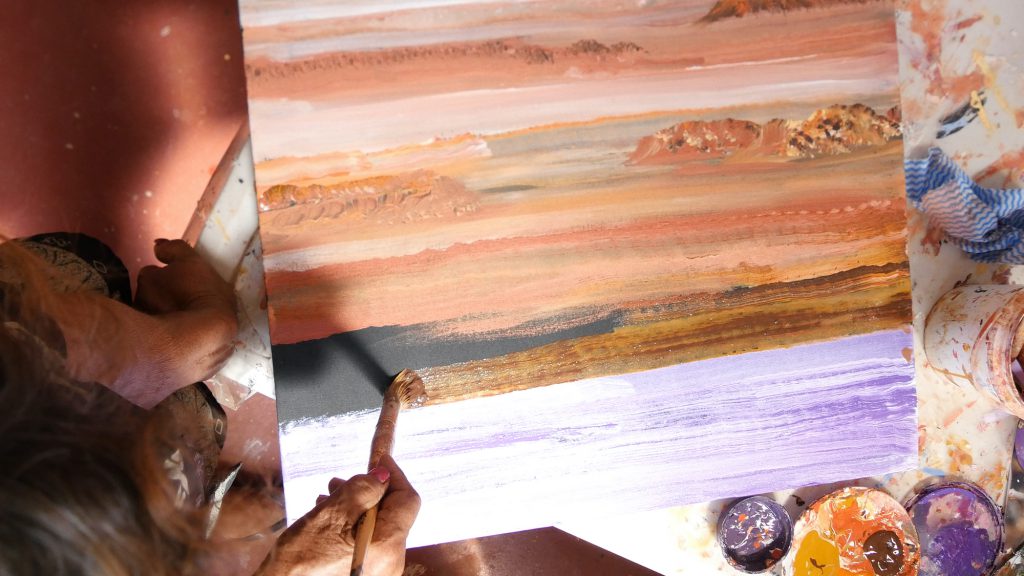Angela Melitopoulos engages with film as a substance of worldly figuration and disfiguration, elaborating on the medium’s corporeal and psychic potential in her multichannel experimental works, sound environments, and video essays that examine the screen as a sensing device and technological skin. Her artistic methodologies and collaborative dialogues have inspired philosopher Maurizio Lazzarato’s term “video philosophy.” Building on the interrelations between time, memory, geography, and subjectivity, Melitopoulos has created cinematic cartographies that chronicle histories of migration, social affinity, animism, resistance movements, anti-psychiatry, and ecological catastrophe under the prolonged impact of neoliberal capitalism.
The four-part video essay Matri Linear B (2021–ongoing), her latest work-in-progress, turns the camera eye toward Earth’s surface, questioning how modes of viewing and perceiving landscapes inform our understanding of geological and civilizational history as well as the layered codes of modern anthropology and subversive archaeology. Diverging from colonial legacies of anthropocentrism and the positivism of natural sciences, Matri Linear B advocates an understanding of the Earth’s surface as a “speaking landscape” such that physical geography itself is perceived as a process of social organization. Seeking societal models that build on a mutuality with natural resources, ancestral ties as sedimentary and lawful formations, proto-feminist contexts of community building and familial life, Melitopoulos looks at matrilineal heritage across disparate locales from the ancient past to the present. She has described her endeavor as “looking for embodied relations and connections in the making of visual cine(so)matic recordings of field and landscape. How do conditions of memory and knowledge scale view, form a process of storytelling, and how are potential matrilineal connections linking to Earth histories?”
Premiering at the Biennale, Surfacing Earth (2021), the second chapter of Matri Linear B, zooms in on the matrix of functions that the landscape plays in the Aboriginal cultures of Australia. The video follows the brushstrokes of Rebecca Wilyuka, for whom painting desert landscapes is a form of active memory and a retrieval of terrains that have been lost to generations of Aboriginal communities, particularly around Alice Springs, Northern Territory. Juxtaposed with image technologies that capture the physical reality of the Earth’s surface, the video installation voices indigenous cosmologies and the ongoing struggle against exploitative, settler-colonial conceptions of land rights and ownership, as forest fires sound an apocalyptic call against ecocide.
Natasha Ginwala

